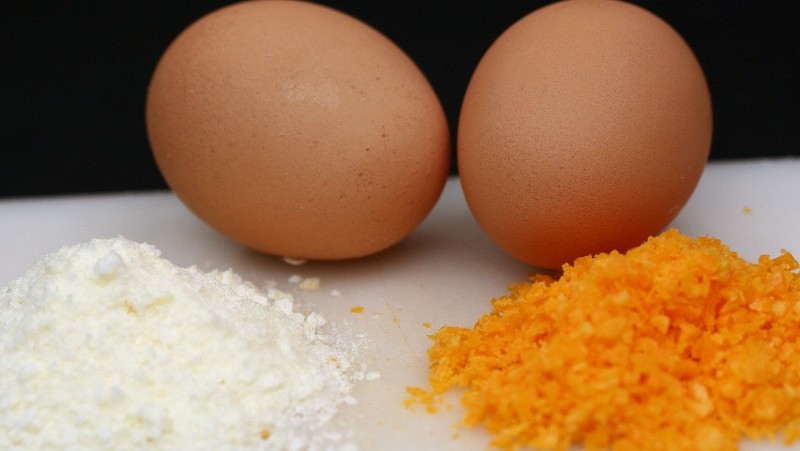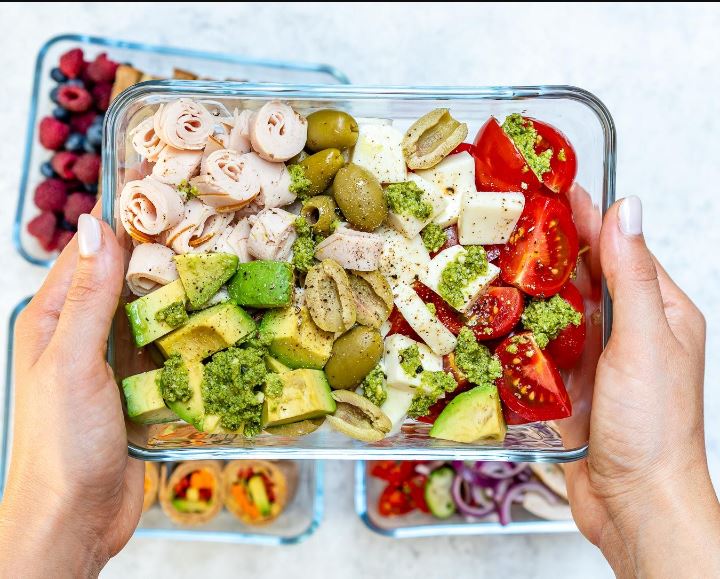Eggs have long been hailed as a nutritional powerhouse, packed with essential nutrients and proteins vital for our well-being. While fresh eggs are a staple in many kitchens, the convenience and versatility of egg powder are becoming increasingly popular.
In this article, we’ll delve into the world of egg powder, exploring its benefits, uses, and why it’s becoming a pantry essential for many.
What is Egg Powder?
Egg powder, also known as dried egg, is simply eggs that are dehydrated and turned into a powdered form. The process involves breaking eggs, separating the yolks and whites, and then spray-drying or freeze-drying them.
This removes the moisture content while preserving the nutritional value, resulting in a fine powder that can be easily reconstituted with water.
The Nutritional Powerhouse
Despite being in powdered form, egg powder retains much of the nutritional goodness found in fresh eggs. It’s an excellent source of high-quality protein, containing all nine essential amino acids necessary for muscle repair and growth. Additionally, egg powder is rich in vitamins such as B12, riboflavin, and folate, along with essential minerals like iron and calcium.
The Convenience Factor
One of the primary reasons for the growing popularity of egg powder is its convenience. Unlike fresh eggs, which require refrigeration and have a limited shelf life, egg powder can be stored at room temperature for an extended period. This makes it ideal for camping trips, backpacking adventures, or emergency food supplies where refrigeration may not be available.
Advantages of Egg Powder
Extended Shelf Life
Egg powder has a significantly longer shelf life compared to fresh eggs, making it a convenient pantry staple that can be stored at room temperature for an extended period.
Convenience
Its powdered form offers convenience in measuring and storing, eliminating the need for cracking and separating eggs, especially in bulk cooking or baking scenarios.
Versatility
Egg powder can be used in a wide range of recipes, including baking, cooking, and beverage-making, serving as a versatile ingredient in both sweet and savory dishes.
Nutritional Value
Despite being dehydrated, egg powder retains much of the nutritional content found in fresh eggs, including high-quality proteins, essential vitamins, and minerals.
Ease of Transport
Its lightweight and compact nature make egg powder an ideal choice for outdoor activities, camping trips, or emergency food supplies where refrigeration may not be available.
Disadvantages of Egg Powder
Loss of Freshness
While egg powder offers convenience and a longer shelf life, it lacks the freshness and flavor profile of fresh eggs, which may be noticeable in certain recipes.
Texture Differences
Reconstituted egg powder may not always mimic the texture of fresh eggs perfectly, especially in dishes where the texture is crucial, such as soufflés or meringues.
Potential Additives
Some commercially available egg powders may contain additives or preservatives for extended shelf life, which may not align with certain dietary preferences or restrictions.
Price
In some cases, egg powder may be more expensive than fresh eggs on a per-unit basis, which could impact budget-conscious consumers, especially if used frequently.
Hydration Process
Reconstituting egg powder with water requires a precise measurement to achieve the desired consistency, which may require some trial and error for inexperienced cooks.
Uses of Egg Powder
Baking
Egg powder is commonly used as a substitute for fresh eggs in baking recipes, including cakes, cookies, muffins, and bread, providing structure, moisture, and leavening properties.
Cooking
It can be added to savory dishes such as quiches, frittatas, casseroles, and sauces to enhance flavor and texture or used as a binding agent in meatloaf or meatballs.
Beverages
Egg powder can be incorporated into protein shakes, smoothies, or homemade energy drinks to boost protein content and nutritional value without altering the flavor significantly.
Emergency Food Supplies
Its long shelf life and nutritional density make egg powder an essential component of emergency food supplies, providing a reliable source of protein and essential nutrients during times of need.
Outdoor Activities
Egg powder is a lightweight and convenient option for outdoor enthusiasts, hikers, and campers who need a compact and easy-to-transport source of nutrition for their adventures.
Versatile Culinary Uses
Egg powder is incredibly versatile in the kitchen and can be used in a wide range of recipes. It can be rehydrated and used as a substitute for fresh eggs in baking, cooking, and even making omelets and scrambled eggs. Additionally, egg powder can be incorporated into smoothies, protein shakes, and other beverages for an added nutritional boost.
Long-Term Storage Solution
Another advantage of egg powder is its long shelf life. When stored in a cool, dry place, it can last for up to a year or more without spoiling. This makes it an excellent option for stocking up on essential ingredients, especially in times of uncertainty or emergencies when access to fresh eggs may be limited.
Economical and Waste Reduction
Using egg powder can also help reduce food waste. Since it has a longer shelf life than fresh eggs, there’s less risk of them going bad before you have a chance to use them. Additionally, you can measure out precisely the amount of powder you need for a recipe, minimizing the likelihood of leftover eggs going to waste.
Conclusion: Embracing Egg Powder in Your Kitchen
In conclusion, egg powder offers a convenient, versatile, and nutritionally rich alternative to fresh eggs. Whether you’re looking to streamline your pantry, reduce food waste, or simply have a backup supply of eggs on hand, egg powder is a worthy addition to any kitchen.
With its long shelf life and myriad culinary uses, it’s no wonder that more and more home cooks and chefs are turning to this pantry staple. So why not give it a try and unlock the potential of egg powder in your cooking adventures?








